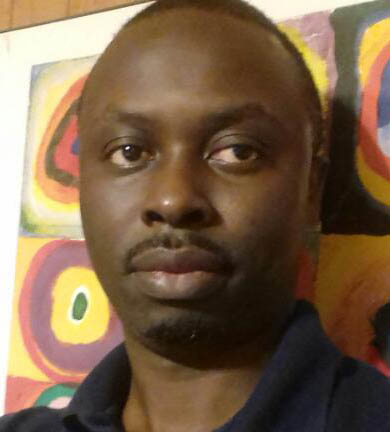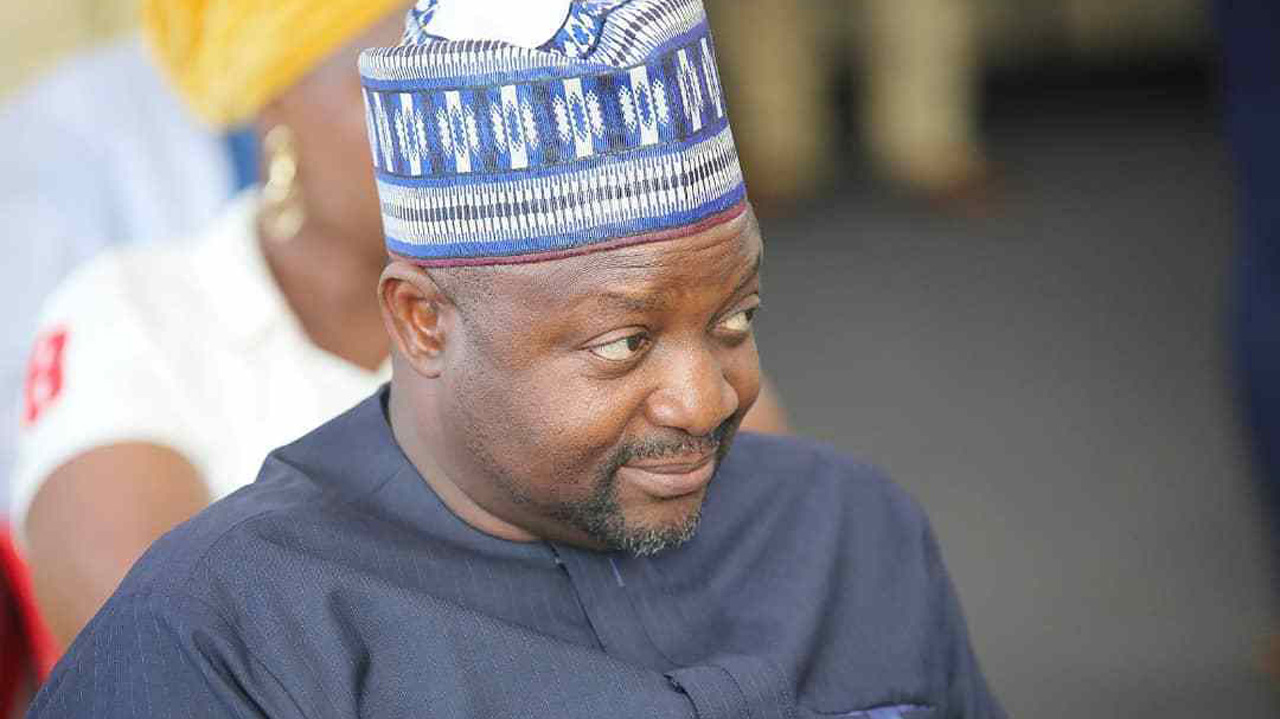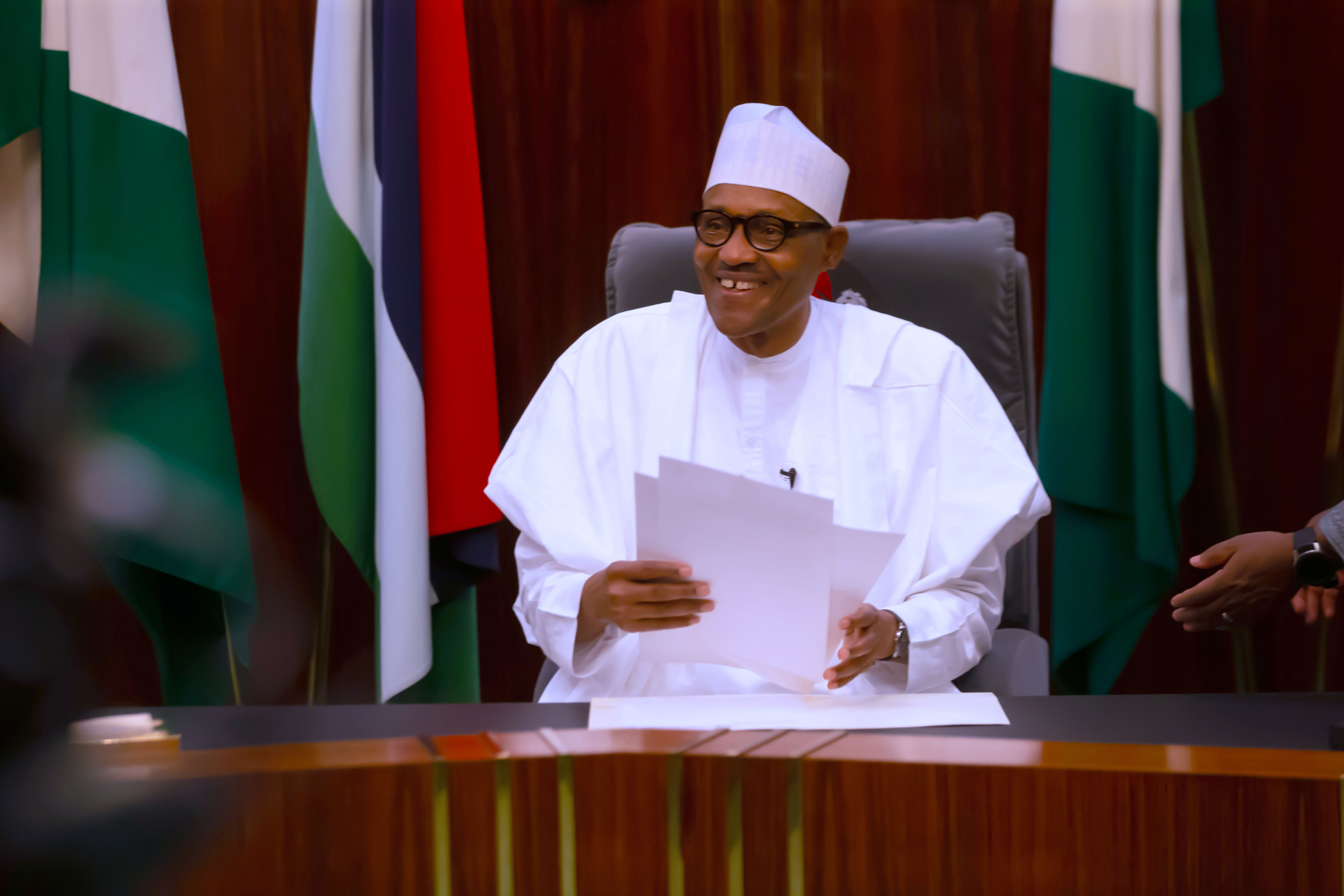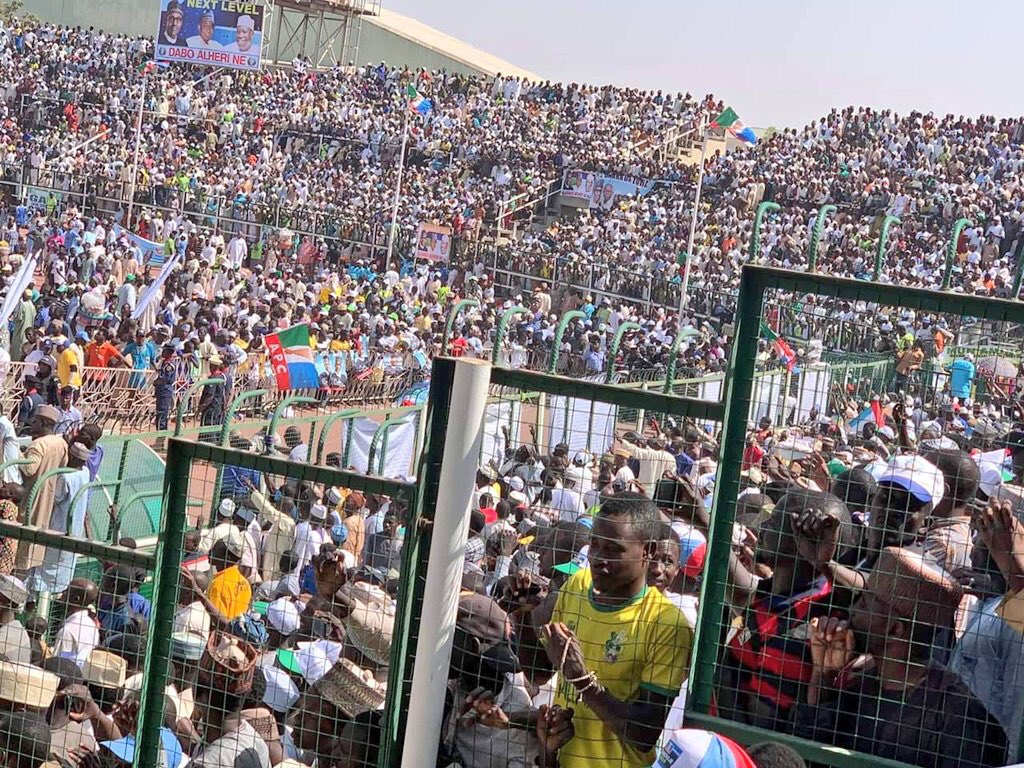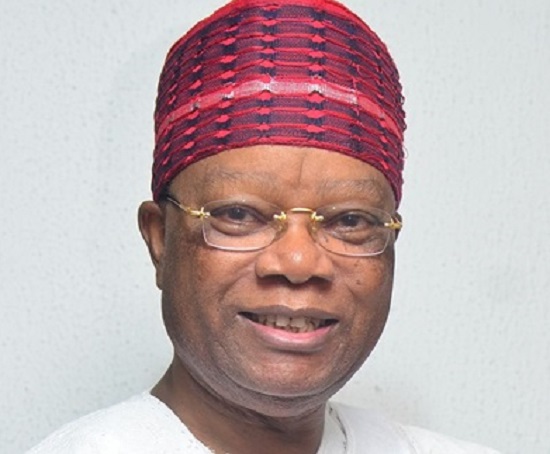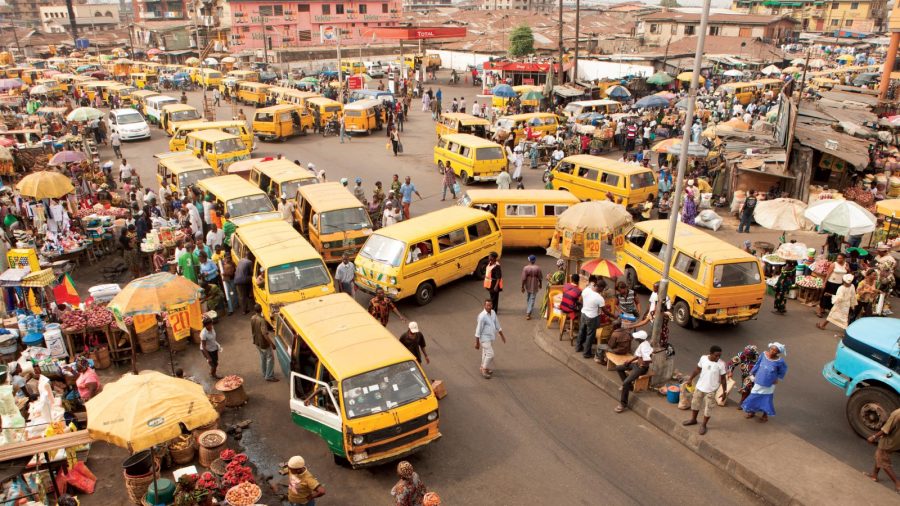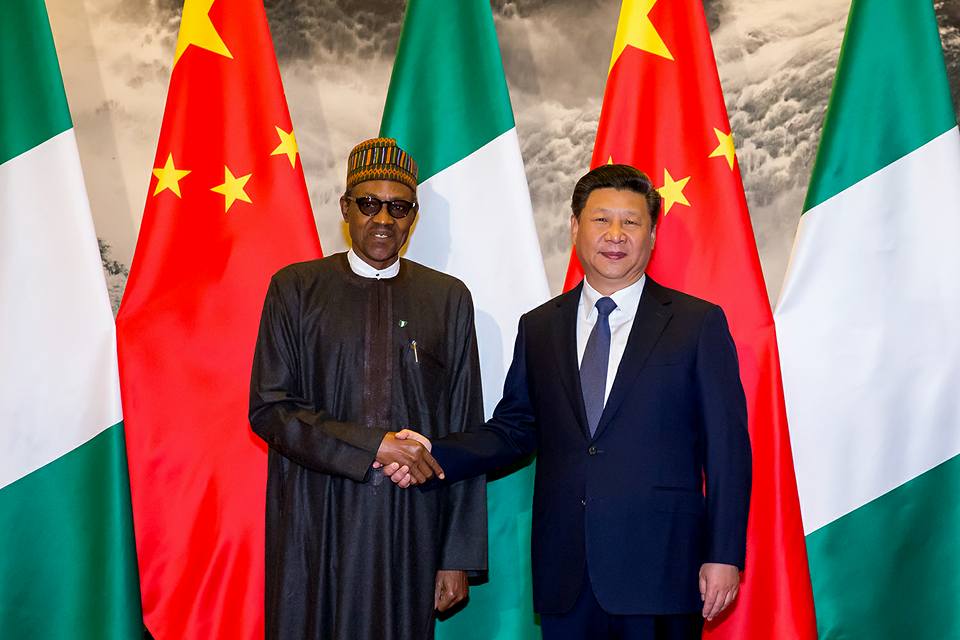President Muhammadu Buhari’s slow steps and poor vitality in governance continue to sow doubts about the commitment of his government to expanding economic prosperity and reducing inequality for the citizens.
First, just the facts. Most of his appointees executing economic development plan for the country are entangled in questionable conduct—leading to unprecedented probes and trust deficit.
The allegations of skullduggery are troubling and sickening. We’ve seen extraordinary drama unfolded at the National Assembly in recent days with figures of sleaze in billions.
Did you see the spectacle. How acting Managing Director of the Niger Delta Development Commission, Professor Kemebradikumo Pondei forced a public hearing to a close with a melodrama at the House of representatives?
Advertisement
Suddenly, a grandiloquent legislative chamber with little substance has turned to a temple where Buhari’s men go to surrender with mysterious look on their faces.
Let’s do the count. The National Health Insurance Scheme(NHIS), Federal Inland Revenue Service (FIRS); Nigerian National Petroleum Corporation (NNPC); Niger Delta Development Commission (NDDC); Nigeria Social Insurance Trust Fund (NSITF); Economic and Financial Crimes Commission (EFCC); National Social Investment Programmes (NSIPs); Presidential Amnesty Office and more have been at the center of investigations for questionable conduct. That is a low, low for a president who promised to rid Nigeria of “pervasive corruption.”
It strikes me that nearly all agencies of this government have struggled to defend one corruption allegation or the other. I think Mr. President must be so disappointed that corruption continues to make big headlines nearly 6 years into his tenure of office.
Advertisement
It is exhausting and infuriating and maddening to see your soldiers take side with the enemy but Buhari has an iron mind, despite his sluggish steps. His continued allocation of fund for development initiatives makes me think so, even though corruption continues to undermine the interventions.
Now, as the minister of Youth and Sports, Sunday Dare, takes charge in a new effort by Buhari to grow the economy, the good optic is to show that all hope is not lost in building a strong economic legacy by the Buhari government.
The newly approved N75 billion Nigeria Youth Investment Fund (NYIF) can crystallize economic growth, if managed with prudence and good practices.
There’s reason to be optimistic that the N75 billion will not become a subject of scandal. First, Dare as the manager of the Fund understands business management. When you speak with Dare on business issues, his techniques for thinking clearly and evaluating success is extra-ordinary. This is where he needs to shine.
Advertisement
In a clear and thoughtful speech after an executive meeting, Dare used the right words to underscore his understanding of why the N75 billion youth fund matters.
“Nigeria can make one quantum leap to dramatically increase its GDP and per capita realities,” he said. “This can only happen if the country begins to invest in the youth through the establishment of a specialized fund that provides accommodating pathways to accessing credit, grants and needed funds for entrepreneurship.”
Many years ago, when I first met Dare on Acme Road in Lagos, he was working as a senior editor for TheNews group, but he was already an opinion leader on many fronts. He had spent the previous year at Harvard on a fellowship that I had interest in, and I wanted to ask a few important questions. But our conversation shifted effortlessly to global economic issues and the state of Nigeria. His leapfrogging economic thoughts captured my attention that I almost forgot why we leaned on the back of his blue Mercedes Benz to talk.
Again, around 2012, I remember we talked about a business idea he was pursuing. As an entrepreneur, he wanted to start a sort of reader’s digest and we chatted about it. In the exchanges we had, his strategic analysis of trends helped me looked at things differently.
Advertisement
There’s more. Dare comes to his job with integrity. So as someone who lived and worked in a system and country where corruption is punished severely, I don’t expect him join the old brigade.
I have sat in the pew with him at a community church we both once attended together in the United States and I know he’s a man called a “brother” in his fellowship.
Advertisement
When it is deeply dark, Dare knows how to turn on the light. Last year, when he became a minister, I was not surprised at the way he turned a waning sports ministry into a place of interest, even at a time Nigeria was not playing any international tournament.
The dose of hope he brought to the Sports and Youth ministry is changing the perception of a ministry that once received funniest memes from Nigerians under his predecessor.
Advertisement
In Lagos, Abuja and other cities where stadiums that are national monuments are beginning to go down for lack of investments, Dare has brought his entrepreneurial spirit to revamp the stadiums. In a sense, by allowing private investors to take charge of the stadiums, the pressure on public fund is reduced.
As an international public policy scholar with understanding of development economics, it makes economic sense to have private investors manage the stadiums.
Advertisement
The big advantage is the impact on local economy as private owners create incentives to make stadiums and games attractive enough for fans to come out.
Indeed, technology is stadiums next enemy just like it is happening in other areas of life. People can now livestream or watch live broadcast anywhere they are. The affordability of large, high-definition televisions makes home-viewing highly competitive with the full stadium experience.
It is a poor economic development plan to continue to invest taxpayer’s money to fund stadiums when there’s opportunity to ask wealthy people to invest. That money can go into education, healthcare, and technology infrastructure—three critical investments that will lift our economy.
Dare needs to use this Fund to redefine engagement with the youths. It will be counterproductive to invest this fund based on cronyism, nepotism, favoritism, party affiliation or man-know-man approach that continues to frustrate our collective progress as a nation.
Last week, when he announced the approval of the 3-year financing with excitement, Dare did not go into details but the need to develop the financing of young innovative companies to reflect current and new challenges is critical to its gains.
When I visited Helsinki, Finland in 2003 and Singapore in 2012, I learned firsthand why their Youth Investment programs worked. There are three components of their programs that created thriving companies that contributed to the GDPs. Tax policies, mentorship programs and technology were at the heart of their programs.
As technology is moving local economies everywhere from production-based to ones based on creativity and innovation, the new Fund will do well to give serious consideration to entrepreneurship with great value-chain.
Already, a critical mass of entrepreneurs and tech-startups are burgeoning in Nigeria, but they must grow in ways that strengthen industries, create good jobs, encourage economic investment and increase wealth and living standards.
Together with other Fund, I believe Dare now has a good chance to play a role in reducing inequality in Nigeria. In an op-ed he penned for neimanreports.org, he mentioned why he quit his job as senior special assistant to the late Dora Akunyili, when the later was Nigeria’s minister of information and communications.
“Somehow, I failed to realize the extent of all that still remained broken. I never saw that I would have to deal with a political system that is steeped in corruption, ineptitude and indifference to the plight of the millions it was designed to serve and protect,” he wrote. “Those who now held power worked, as past dictatorships had, only to serve the needs and protect the interests of the few in privileged political positions… Like many other Nigerians, I wanted to play a part in bringing about democratic changes. Unfortunately after taking this job I soon realized that, due to a lack of political will and of coordination among all levels of government, there was no process for change…Here I was working for a government I didn’t respect. In August 2009, I turned in my resignation letter.”
Will the management of this Fund be a game changer for Dare in politics?
SIDE EFFECTS
Dogara’s Double Deal
As we try to catch our breath after watching the Professor Pondei film at the House of Representatives, the film flipped and the magic movie brought the immediate past Speaker of the House of Representatives, Yakubu Dogara, who was standing beside President Muhammadu Buhari, inside Aso Rock. Here is the background to the story. When Dogara left APC in the wake of the 2019 elections, he became a thorn in the flesh of Buhari and the All Progressives Congress, calling them names. The interesting side of the story is that a few days ago Dogara was the managing Peoples Democratic Party (PDP) candidate screening for Ondo governorship elections. What shall say to this? I will go for Mark Twain’s words. “Politicians are like diapers, they need to be changed often, and for the same reasons.” Dirty!
Peter Obi’s Regret
We are in a season of opportunity. That’s just the way I see COVID-19. The story shared by former governor of Anambra State, Peter Obi, is a good illustration of how great opportunities are less appealing. According to Obi, in 2015 he met a group of people in the US who invited him to invest in Zoom when they just started and were hungry for money. According to him, “as of that time, it would cost you less than 30 cents to invest in Zoom if I wanted to do so.” But Obi dismissed the idea of Zoom with a wave of hand because meeting on videos would not just happen. Today, Zoom is where everything happens, and it is a cash-cow for the owners. In May, Zoom’s market capitalization skyrocketed to $50 billion. Lesson!
Coronavirus and Corruption
Even in ordinary times, the healthcare sector has been a place where corruption deprives millions of Nigerians access to quality healthcare. We’ve heard of sales of mosquito nets donated by international partners and we’ve seen money budgeted for primary healthcare facilities misappropriated. So with COVID-19 Fund, there’s a potential risk of the money being misused. This calls for urgent transparency of how the Fund has been used to detect fraud and stop the virus of corruption together with COVID-19. Watch out!
Views expressed by contributors are strictly personal and not of TheCable.
Add a comment
